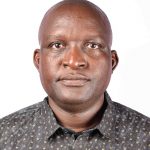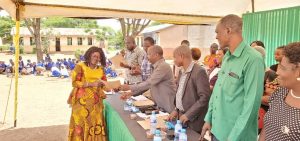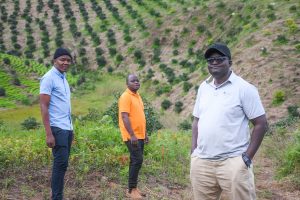Finding better ways to engage with donors
06 Jun 2024
Jonathan Kifunda is the Founder and Executive Director of Thubutu Africa Initiatives (TAI), a civil society organization (CSO) working in rural communities in the Shinyanga region of North Western Tanzania some 500km from the capital city. The CSO’s name is derived from the Swahili word “Thubutu” meaning “to dare”, and the organization focuses on education and health, primarily for women and girls.

Jonathan Kifunda, Thubutu Africa Initiatives
Jonathan Kifunda is thinking about better ways to engage with donors. He believes donors need to understand the challenges that current approaches to funding create in communities – and to be able to understand he believes donors need to see the impact for themselves.
“We need to take donors into communities and show them the reality on the ground, and the magnitude of some of the failures that come from the systems they have built. We can also show them the successes that new ways of funding are bringing. Once they realize the issues and go ‘aha!’ we can invite them to be part of the solution – and this is when they could be willing to team with us and begin to #ShiftThePower.”
Many of the complaints about donors relations that were raised at the #ShiftThePower Global Summit in Bogotá and beforehand chime with his own experience. He is concerned, though, about how negative feedback is communicated to donors. He believes “soft language” rather than criticism will lead to better results.
“The issue of language is very key here. Communicating in the wrong way could create resistance – and speaking in the right way could lead to closer cooperation and support. We need to build the logic to help donors to change. We need to learn how to speak to them and get them around the table to talk to them about the challenges. What I have learnt is donors need to be engaged in the whole process of shifting the power because they have a stake – it’s their money and their systems.”
The difference between “warm” money and “cold”
As well as attending the Summit, Jonathan took part in a pre-Summit weaving conversation entitled “Who does civil society belong to?” where the concept of “warm money” was raised in the chat by Dr Moses Isooba, Executive Director of the Uganda National NGO Forum (UNNGOF). Jonathan picked up the prompt and commented: “Back in the day, there was warm money and cold money: warm money is easily appreciated and seen by the community, and people feel good that they are part of a project made possible by this money. Cold money is just pumping the money in with instructions that the money should do this and that.”
Speaking after the Summit, Jonathan said: “Donors and INGOs who want to support a community, should make sure their money is warm and not cold. Which is why we need to sit down with them and work together to dismantle the systems they have created. We need to show them that they have the role to play in the community, to push them to really act for the community, and if they do it will give them real legitimacy in the community.”
A mind-set change is needed for CSOs and communities
Shifting the power means a mind-set change for donors, to embrace CSOs and communities as partners and see beyond just looking to implement projects, but Jonathan believes communities and CSOs also need to change their mind-sets.
“I always tell people in the community that we need to shift our mind-set too. We have to realize that, while we do need support, we don’t need support on everything.” When Jonathan started talking about community philanthropy and making use of local resources to solve local problems he worried that people were accustomed to external organizations providing things the community needed – and that asking communities to support local ventures would be hard to sell.
“We did a quick survey to check the mind-set of people and we were surprised to find that people said they would feel very proud to participate in the development of their community.” They also said that they would feel more pride in a project they had helped to make happen than one donated by an outside organization. “Sometimes we just make an assumption that people don’t have resources. This survey gave us a clue that in reality there are people who have resources – however modest – and are willing to support their community.”
TAI are also changing their own mind-set and adopting a new hybrid funding strategy, generating income from investing in business, drawing on support from the community, and getting support from donors. “We know we can’t grow into a quality organization if we don’t have good administration and employ quality staff. So the money we can generate ourselves pays for things that donors are less interested in paying for.”
Reducing dependency, ensuring legitimacy
When it comes to donors, Jonathan wants the hybrid approach to reduce their overall dependency on donor funding, and therefore be able to only work with those who are willing to genuinely engage with the community and work on issues which the community can’t overcome on their own. “We want to work in a mutual collaboration, a partnership model where the partners are equal.”
He also wants to encourage CSOs to remember that they owe their legitimacy to their role in the community. “Some CSOs I have encountered were brought to life not because they are needed by the community, but because they are needed by the donors to implement projects. Civil society needs to recognize that their primary responsibility is to address the issues faced by communities and not the priorities of the funder. We belong to the community – and anyone who comes and supports our work must accept that.”
Read more in the series #RoadFromBogotá: Perspectives on how CSOs are faring as they work to #ShiftThePower and the accompanying series #RoadFromBogotá: Perspectives on how INGOs are faring as they work to #ShiftThePower



